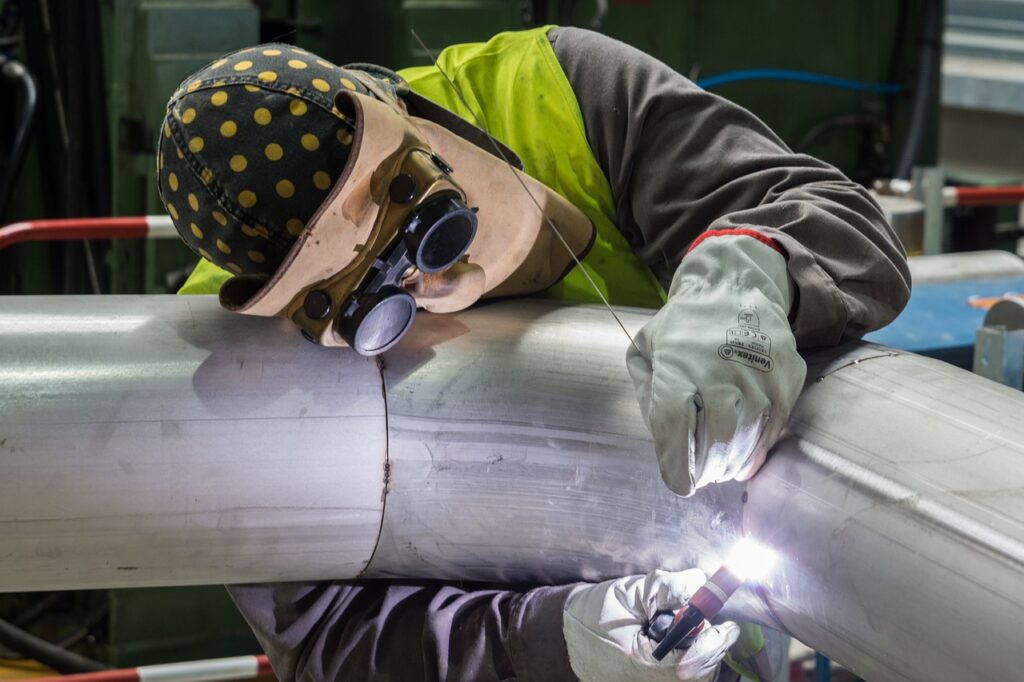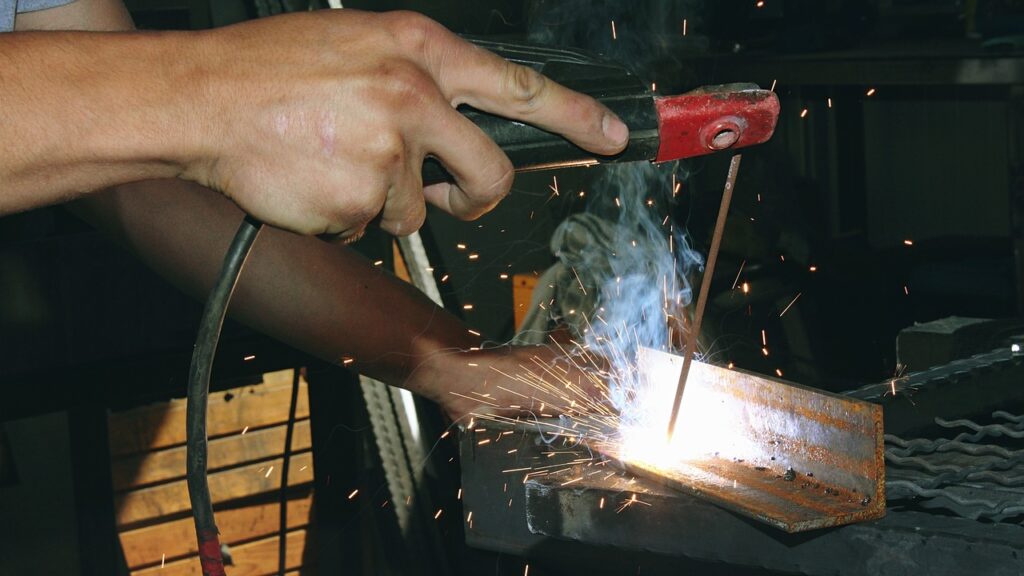Welding is a vital and in-demand trade career, encompassing a variety of industries such as construction, manufacturing, and automotive. As a welder, you’ll be responsible for joining metal pieces together using heat and various techniques. In this profession, knowing the salary ranges by state is essential.
Understanding the welder salary landscape is crucial for making informed decisions about your education and career goals. By being aware of the salary ranges in different states, you can better assess your potential earnings and plan for your future. This knowledge can also help you identify the best locations for professional growth and financial success.
Factors Affecting Welder Salary
When considering a welding career, it’s essential to understand the factors that can influence your salary. These factors include experience and education, the industry and demand for welders, and your geographic location.
Experience and Education
As with most professions, your experience and education play a significant role in determining your salary. Entry-level welders tend to earn less than their experienced counterparts. However, as you gain experience and develop specialized skills, your earning potential increases. Consider doing an apprenticeship to get valuable real-world experience.
Additionally, welders with formal education and certifications can command higher salaries. By investing in your education and obtaining relevant certifications, you can demonstrate your expertise and stand out from the competition, leading to better job opportunities and higher wages.
Industry and Demand
The industry you work in can also impact your salary as a welder. For example, industries with a high demand for skilled welders, such as aerospace or energy production, often pay higher wages. On the other hand, lower-demand industries may offer less competitive salaries.
Keeping an eye on industry trends and demand can help you make informed decisions about your career path and potential earnings. Aligning your skills and expertise with high-demand industries can lead to better job opportunities and increased earning potential.
Geographic Location
Your geographic location is another crucial factor that affects your welder salary. Salaries for welders can vary significantly from state to state and even within the same state. Cost of living, local demand for welders, and regional economic factors all play a role in determining your salary in a specific location.
By researching and understanding the salary ranges for welders in different areas, you can make informed decisions about where to pursue your welding career and maximize your earning potential.
Top-Paying States for Welders
While welder salaries can vary significantly across the United States, some states offer higher wages than others. In this section, we will discuss the top 5 states with the highest welder salaries and provide a brief overview of the job market and demand in these states.

Top 5 States with the Highest Welder Salaries
- Alaska: Welders in Alaska can earn high wages due to the state’s thriving oil and gas industry, which requires skilled welders for pipeline construction and maintenance.
- Hawaii: The high cost of living in Hawaii contributes to elevated welder salaries in the state. Moreover, the demand for welders in industries such as construction and shipbuilding drives up wages.
- Wyoming: A strong mining industry in Wyoming creates ample job opportunities for welders, leading to higher salaries. The state’s low population and remote locations also contribute to increased wages.
- North Dakota: The oil and gas industry in North Dakota drives demand for welders, resulting in higher salaries. Additionally, the state’s low unemployment rate and remote work locations contribute to increased wages.
- Connecticut: The aerospace and defense industries in Connecticut require skilled welders, leading to higher salaries in the state. The high cost of living also contributes to elevated wages for welders.
Job Market and Demand in Top-Paying States
In the top-paying states for welders, demand is typically driven by specific industries requiring skilled workers. For example, the oil and gas industries in Alaska and North Dakota create ample job opportunities for welders. Similarly, the aerospace, defense, and shipbuilding industries in Hawaii and Connecticut contribute to increased demand for skilled welders.
While these states offer higher salaries for welders, it’s essential to consider the cost of living and other factors when determining your earning potential. By understanding the job market and demand in these states, you can make informed decisions about your welding career and maximize your income.
Average Welder Salary by State
To better understand the welder salary landscape across the United States, it’s essential to examine the average wages in each state. The following table showcases the average welder salary in each state, providing insight into regional trends and differences.
Welder Salary by State
Regional Trends and Differences
From the table above, it’s evident that welder salaries vary across the United States. Regions with a higher cost of living, such as Hawaii and Connecticut, tend to offer higher salaries. Meanwhile, states with thriving industries that require skilled welders, like Alaska and Wyoming, also provide above-average wages.
On the other hand, states with lower costs of living or less demand for welders may offer lower salaries. Understanding these regional trends and differences can help you make informed decisions about where to pursue your welding career and maximize your earning potential.

How to Increase Your Welding Salary
As a welder, there are several ways to increase your earning potential and maximize your salary. In this section, we’ll discuss three strategies for boosting your welding salary: pursuing further education and certifications, gaining experience in high-demand industries, and relocating to states with higher salaries and demand.
Pursuing Further Education and Certifications
One of the most effective ways to increase your welding salary is by investing in your education and obtaining relevant certifications. By completing specialized training such as attending a welding school and acquiring welding certifications, you can demonstrate your expertise and stand out from the competition. Employers often value certified welders more highly, leading to better job opportunities and increased wages.
Gaining Experience in High-Demand Industries
Another way to boost your welding salary is by gaining experience in high-demand industries. As previously discussed, industries such as oil and gas, aerospace, and defense often pay higher wages for skilled welders. By aligning your skills and expertise with these in-demand sectors, you can increase your earning potential and access better job opportunities.
Relocating to States with Higher Salaries and Demand
Lastly, you may consider relocating to states with higher salaries and demand for welders. As we’ve seen, some states offer significantly higher wages for welders due to factors such as cost of living and industry demand. By moving to one of these states, you can potentially increase your earning potential and further your welding career.
Keep in mind that relocating can also come with challenges and expenses, so it’s essential to weigh the potential benefits against the costs before making a decision.
Wrapping It All Up
We’ve explored the welding salary landscape across the United States, highlighting factors that can influence your earning potential. We’ve discussed the top-paying states for welders, the average welder salary by state, and strategies for increasing your welding salary, such as pursuing further education and certifications, gaining experience in high-demand industries, and relocating to states with higher salaries and demand.
As you consider a career in welding, keep these insights in mind to make informed decisions about your education and career goals. Remember that investing in your education and skill set can lead to better job opportunities and higher wages. With determination and dedication, you can achieve success in the welding profession and maximize your earning potential.
At pathways2advancement.org, our mission is to support adult learners and non-traditional students in making informed decisions about their education and career goals. Explore our website for more information on education pathways, degree programs, and financial aid options that can help you advance your welding career and reach your full potential.
Additional Sources Used:
https://www.bls.gov/ooh/production/welders-cutters-solderers-and-brazers.htm
https://www.glassdoor.com/Salaries/welder-salary-SRCH_KO0,6.htm
https://www.salary.com/research/salary/benchmark/welder-i-salary
